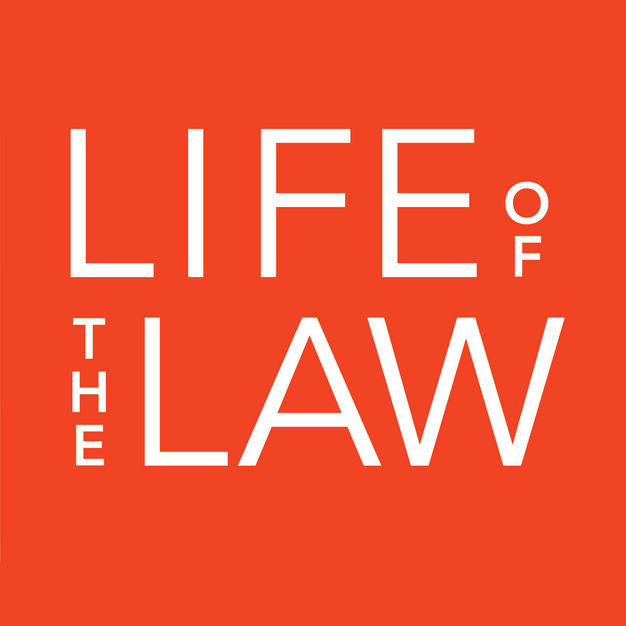
Life of the Law
Nancy Mullane / Panoply
Law is alive. It doesn’t live in books and words. It thrives in how well we understand and apply it to everyday life.
- 20 minutes 8 seconds139: Release Day [Rebroadcast] & Special Announcement
It's official, and it's one more amazing step into the future at Life of the Law: we have a new Executive Director. Six years after Nancy Mullane, Tom Hilbink and Shannon Heffernan launched the first episode of Life of the Law, with stories about jury nullification and jailhouse lawyers, we welcome a new fearless leader. Tony Gannon, whom you have come to know as our talented behind-the-scenes Senior Producer brings his vision and exciting energy to LOTL as our new Executive Director. This change will allow Nancy Mullane to focus on reporting, which, as many of you know, is what Nancy lives to do!
To celebrate this moment for Tony and Nancy, we have chosen to publish one of Nancy's stories from our archives... "Release Day." In 1994, California voters passed thethree strikes lawwhich required anyone with two felony convictions to receive a sentence of 25 years to life for committing their third felony. Between the mid-1970s and 2006, the three strikes law and other harsh sentencing guidelines increased California's prison population by 750 percent.
On November 6, 2012, Californians voted to change the three strikes law. That measure, known as Proposition 36 eliminated life sentences for non-violent crimes and allowed some of the prisoners sentenced under the three strikes law to petition for release for time served.
Curtis Penn is one of those prisoners. Life of the Law executive producer Nancy Mullane chronicles the day Curtis was released from prison.
Produced by: Nancy Mullane, Kaitlin Prest, Alisa Roth, Shannon Heffernan, Jillian Weinberger & Katie BarnettEdited by: Julia Barton
Music by: Kyle Kaplin, Matthew Dahar and Todd MacDonald
Special Thanks: Tom Hilbink
Learn more about your ad choices. Visit podcastchoices.com/adchoices
26 September 2018, 7:36 am - 24 minutes 40 seconds138: Call NOW! [Rebroadcast]
When things go bad all you need to do is pick up the phone and CALL. Since the US Supreme Court allowed lawyers to advertise in the 1970s, practices like these have skyrocketed, with often shoddily-produced results. Are tacky lawyer ads trashing the profession or simply making it more easily accessible to those who might not otherwise know who to call when they need an attorney?
We are rebroadcasting a long-time favorite episode from our archive as we slow down for the summer. We aim to publish some classic episodes until we return in the fall. Please do not hesitate to reach out in the meantime with suggestions or comments!Below please find producer Sean Cole's original write-up for Call NOW!
I have always been so impressed by lawyer commercials on TV, and by impressed I mean…totally confused. I’m always like, “Who told you that disaster footage or wooden readings from cue cards or your cousin wearing a judge’s robe would be a great way to represent your law practice?” But then I stumbled into the engine room of lawyer advertising regulation. And learned about the silent era before these ads were even allowed. And the Big Bang after which they couldn’t be contained. And the subtle, possibly endless civil war in Lawyer Nation over how and even whether attorneys should advertise their services—whether lawyers have doomed themselves as a profession with all these swiveling gavels and toll-free numbers, or whether they’re reaching the aggrieved, attorney-less masses while exercising their First Amendment rights to free speech.
If you want to know more, click on the audio above. Hammers await you. Flaming cars and talking cars and possibly aliens await you. Seriously, do not delay: CLICK NOW.
To donate, visit our website www.lifeofthelaw.org
Send an email [email protected]Production Credits:
Reporter/Producer: Sean Cole
Producer: Kaitlin Prest
Music: Kyle Kaplan, Todd MacDonald, Matthew Darr
Additional Production: Shannon Heffernan, Ashleyanne Krigbaum
Additional Music - Andrea Hendrickson
Social Media Editor - Rachael Cain
Executive Producer - Nancy Mullane
Executive Director - Tony Gannon
We are a non-profit project of the Tides Center and we’re part of the Panoply Network of Podcasts from Slate. You can also find Life of the Law on PRX, Public Radio Exchange.
© Copyright 2018 Life of the Law. All rights reserved.
Learn more about your ad choices. Visit podcastchoices.com/adchoices
26 June 2018, 4:00 am - 9 minutes 10 seconds137: Law and Society Association Conference Highlights
Where does one find a discussion of research on abduction for forced marriage amidst West and Central African conflicts? Where does one find research on how ‘yes means yes’ policies on university campuses have affected the college students intended to follow these new rules of consent? What about a conversation on the various strains of conservative thought?
The Law and Society Association’s annual conference just came to an end, and we were happy to find the scholars and researchers engaging these questions and more. For the first time, Life of the Law set up a listening station where attendees could interface with the production team, listen to previous podcast episodes and engage in impromptu conversation.
Life of the Law also co-presented the panel Building Partnerships, which was a discussion on the year-long process of producing our four-part Uganda series. The series was an international collaboration of journalists, researchers and legal scholars that worked together across time zones in order to tell the stories of people once held in captivity.
Life of the Law facilitated two panels where attendees pitched potential ideas for stories based on their own work. We are grateful to everyone who stopped by our listening station to contribute ideas, make suggestions, listen to our podcast and even agree to impromptu interviews. The exchange of information that was based on years of research by LSA scholars, advocates, attorneys, sociologists and political scientists made for an incredible conference.
For our next episode, we also had the opportunity to speak with former Chief Justice of the Supreme Court of Texas Wallace B. Jefferson and Professor of Law at the University of Houston Renee Knake.
To donate, visit our website www.lifeofthelaw.org
Send an email [email protected]
Production Credits:
Executive Producer - Nancy Mullane
Sr. Producer - Tony Gannon
Associate Producer - Andrea Hendrickson
Social Media Editor - Rachael Cain
We are a non-profit project of the Tides Center and we’re part of the Panoply Network of Podcasts from Slate. You can also find Life of the Law on PRX, Public Radio Exchange.
© Copyright 2018 Life of the Law. All rights reserved.
Learn more about your ad choices. Visit podcastchoices.com/adchoices
19 June 2018, 12:23 pm - 34 minutes 37 seconds136: New Voices Series - Law Students Take on Immigration
Immigration law is a mystery. Unless you’re an immigrant seeking relief under the law, or you’re an immigration law attorney, it’s an unknown. Then, earlier this year, Karla McKanders, a professor of immigration law at Vanderbilt Law School sent us an email. Her law students were producing their final reports on immigration and refugee law as audio stories, and would Life of the Law be interested in listening to, and possibly publishing their work as part of our New Voices series? Absolutely. Tony Gannon, our senior producer and I met with the class for a conference call workshop but they were well on their way to building their stories.
Today, Life of the Law presents three of the stories produced by the students in Professor McKanders' immigration law class at Vanderbilt University Law School. A note - they were not asked to approach the project as journalists, but as law students, so some of their stories include their perspectives on immigration and refugee law.
Many refugees leave their home country because of a well-founded fear they will be persecuted if they remain. As Joshua Minchin reports, how “well-founded fear” is defined and interpreted can make a profound difference for individuals seeking refuge in the United States. Our first story is Well Founded Fearby Joshua Minchin.
So if a refugee appears in a US Immigration court with a claim of well founded fear, will they receive a fair neutral hearing by the court, or do judges bring their own bias to the bench in asylum hearings? Our second story is Wrong Judge, at the Wrong Time by Simina Grecu.
Our final story… is from Rachael Pikulski. The US places an important role in helping refugees throughout the world by providing funding to the United Nations. But this year, the Trump Administration cut funding to the UN agency that provides services to refugees. Rachael Pikulski took a look at the impact of these cuts on one group of refugees, Palestinians.
Production Credits:
This episode of Life of the Law was produced by Joshua Minchin, Simina Grecu and Rachael Pikulski, students in Professor Karla McKanders' Immigration Law Class at Vanderbilt Law School. It was edited by Life of the Law’s Senior Producer, Tony Gannon and Associate Producer, Andrea Hendrickson, who also composed the music. Additional music by Alex Blank. Our Social Media Editor is Rachael Cain.
We are a non-profit project of the Tides Center and we’re part of the Panoply Network of Podcasts from Slate. You can also find Life of the Law on PRX, Public Radio Exchange.
© Copyright 2018 Life of the Law. All rights reserved.
Learn more about your ad choices. Visit podcastchoices.com/adchoices
28 May 2018, 8:12 am - 43 minutes 23 seconds135: In-Studio: Peril and Promise of Genetic Testing
How curious are you about your genetic makeup? There are hundreds of companies that provide direct-to-consumer tests that promise your genealogy, deep ancestry and biogeographical ancestry. Other tests offer genetic information about your health and traits, with some promising your whole genome sequencing. But when you get the results, do you really know what you have? And do you know, without a doubt, who ultimately has access to your genetic information?
This week, our team meets up in the studios of KQED in San Francisco to see if we can sort out the answers to the question - genetic testing - promise or peril?
Join Life of the Law's team Osagie Obasogie, Tony Gannon, Nancy Mullane and guest, Lea Witkowsky who joined the Innovative Genomics Institute as a science policy analyst to look at the regulatory landscape as it relates to new genetic engineering technologies and the role of public perception in biotechnology development and adoption.
Production Credits:
This episode of Life of the Law was edited and produced by Nancy Mullane, Tony Gannon and Andrea Hendrickson. Our in-studio engineer was Katie McMurran. Our Social Media Editor is Rachael Cain.
Thanks to our In-Studio team Lea Witkowsky, Policy Analyst with the Innovative Genomics Institute; Osagie Obasogie, Professor at UC Berkeley's School of Public Health; and Life of the Law's Associate Producer, Andrea Hendrickson.
We’re a non-profit project of the Tides Center and we’re part of the Panoply Network of Podcasts from Slate. You can also find Life of the Law on PRX, Public Radio Exchange.
Special thanks to The Haas Institute for a Fair and Inclusive Society, and Marcy Darnovsky and Osagie Obasogie at The Center for Genetics and Society.
© Copyright 2018 Life of the Law. All rights reserved.
Learn more about your ad choices. Visit podcastchoices.com/adchoices
15 May 2018, 4:00 am - 45 minutes 7 seconds134: GATTACA REVISITED - Up the Borrowed Ladder
Some two decades ago, filmmaker Andrew Nicols wrote and directed GATTACA a sci-fi movie that presented a future in which individuals and society were at risk from having gained access to, and control of, our genetic code.
Today, 20 years after the movie's initial release, that future fiction, once considered distant and impossible, is, in many ways, now. More than 500 laboratories offer 2,000 genetic tests. Once limited to medical professionals, the FDA has approved direct-to-consumer genetic tests that can test for 5,000 variants. Instead of looking at simple chromosomes, we can pay for the sequencing almost all of our genetic material.
For some parents-to-be, prenatal genetic screening allows couples to decide whether to complete a pregnancy to term, or with preimplantation genetic diagnosis, allows them to allows couples to decide whether to have an embryo found to have "disorders and mutations" implanted at all.
Are we paying attention to the ways this information is, and could, alter the human race in ways once thought only possible in sci-fi novels and movies like GATTACA? While the general consensus in the scientific community seems to be to steer clear of research that affects hereditary genetic traits, the push to test that boundary seems inevitable.
To consider these questions in 2018, The Center for Genetics and Society and the Haas Institute for a Fair and Inclusive Society presented two screenings of GATTACA followed by panel discussions with the audiences in the Bay Area.
This episode of Life of the Law was produced by Senior Producer, Tony Gannon and Associate Producer Andrea Hendrickson. Nancy Mullane is our Executive Producer. Our Social Media Editor is Rachael Cain. We sampled audio clips from the film GATTACA. All other music was composed by Andrea Hendrickson. Katie Murphy audio described portions of the film.
We’re a non-profit project of the Tides Center and we’re part of the Panoply Network of Podcasts from Slate. You can also find Life of the Law on PRX, Public Radio Exchange.
© Copyright 2018 Life of the Law. All rights reserved.
Learn more about your ad choices. Visit podcastchoices.com/adchoices
1 May 2018, 12:18 pm - 47 minutes 48 seconds133: In-Studio: Police, Race and Fatal Force
Mothers, brothers, sons and daughters in cities across the country are suffering from the loss of a loved one to police use of fatal force. In 2017 The Washington Post reports police officers in the United States shot and killed 987 people. Sixty eight of them, men and women, some of them teenagers like Tony Robinson, were unarmed when they were shot and killed by police officers. The county with highest number of police shootings per capita in the country, is right here in Kern County in California. Last year, police in Los Angeles shot more than three times the number of people shot by police in New York City, even though NY has one-fourth as many officers.
What is the law on the police use of lethal force? Is there a way, under the law, to prevent these deaths from happening in the future?
This week, Life of the Law's team meets up in the studios of KQED in San Francisco to talk about our most recent episode, DEATH BY POLICE: A MOTHER'S (AUDIO) DIARY and officer use of fatal force.
In-Studio Team:
• Osagie Obasogie, Professor at the UC Berkeley School of Public Health and a Member of Life of the Law’s Advisory Board
• Tony Gannon, Life of the Law’s Senior Producer
• Troy Williams, Founder of the San Quentin Prison Report and RISE Coordinator at Chabot College.
• And joining us from the studios of KQED in Sacramento, Lizzie Buchen, Legislative Advocate for the ACLU of California’s Center for Advocacy and Policy.
Production Notes:
IN-STUDIO: POLICE, RACE AND FATAL FORCE was produced by Tony Gannon and Andrea Hendrickson. Nancy Mullane is Executive Producer. Rachael Cain is our Social-Media Editor. Katie McMurran was our engineer at KQED in San Francisco. Katie Orr engineered from KQED studios in Sacramento.
Special thanks to Lizzie Buchen, Legislative Advocate with the ACLU California’s Center for Advocacy and Policy and Troy Williams, Founder of the San Quentin Prison Report and RISE Coordinator at Chabot College for joining us In-Studio.
Life of the Law is a non-profit project of the Tides Center and we’re part of the Panoply Network of Podcasts from Slate. You can also find Life of the Law on PRX, Public Radio Exchange. Visit our website, Life of the Law.org and make a very much appreciated donation to help cover the costs of producing this feature episode. © Copyright 2018 Life of the Law. All rights reserved.
Learn more about your ad choices. Visit podcastchoices.com/adchoices
17 April 2018, 2:50 am - 38 minutes 59 seconds132: Death by Police: A Mother's (audio) Diary
Police officers throughout the U.S. shoot and kill unarmed people, in Sacramento, Detroit, New Orleans and in Madison. The Washington Post reports 987 people were shot and killed by police in 2017, sixty-eight of them were unarmed. There are marches and calls for investigations and in the end, justice is elusive. So when Life of the Law producer Zoe Sullivan said the mother of an unarmed bi-racial teenager who had been shot and killed by a police officer in Madison had been keeping an audio diary after her son's death, we listened. We hope you will too.
Production Notes:
DEATH BY POLICE - A MOTHER'S (AUDIO) DIARY was recorded by Andrea Irwin and produced by Zoe Sullivan. Tony Gannon is our Senior Producer. Nancy Mullane is Executive Producer. Music and production support by Andrea Hendrickson. Rachael Cain is our social-media editor.
Life of the Law is a non-profit project of the Tides Center and we’re part of the Panoply Network of Podcasts from Slate. You can also find Life of the Law on PRX, Public Radio Exchange. Visit our website, Life of the Law.org and make a very much appreciated donation to help cover the costs of producing this feature episode. © Copyright 2018 Life of the Law. All rights reserved.
Learn more about your ad choices. Visit podcastchoices.com/adchoices
2 April 2018, 7:00 am - 1 hour 37 minutes131: LIVE LAW SF - Initial Public Offering
This week Life of the Law presents LIVE LAW... stories from people living with the rapid fire shifts that come with tech in the Bay Area, folks who are pushing back against the gentrification and alienation to try to make real life contact through music, journalism, murals, and filmmaking.
LIVE LAW San Francisco: Initial Public Offering took place on Friday night, February 23rd at The Polish Club in San Francisco's Mission District. We recorded the night so we could share it with you -- stories by Fantastic Negrito, Marcus Thompson, Irene Tu, Riddhi Shah, Troy Williams and Sirron Norris.
This episode was produced by Nancy Mullane and Tony Gannon. Engineered by Katie McMurran and Scott Steiner. Production by Andrea Hendrickson. Music is by Max McKellar and Rick Wilkerson. Our Social Media editor is Rachael Cain.
We also want to thank the volunteers who made the night possible, Khalilah Nelson, Sandy Fish, Andrew Germond, Nayeli Maxson, Poppy Dere, Brittny Bottorff, Kay Carter, Baxter Bhansalli, Steve Schellenger, Corinne Smith, Scott Steiner, Carlos Gonzalez, Amy Mostafa, Paul Galvin, and Max McKellar.
Learn more about your ad choices. Visit podcastchoices.com/adchoices
20 March 2018, 3:36 pm - 1 hour 14 minutes130: Inside San Quentin - Moonlight
What would men in prison say, if we just listened? This week, Life of the Law presents a new INSIDE SAN QUENTIN episode - conversations inside San Quentin produced exclusively by men incarcerated inside the prison.
We have laptops and can watch just about any movie or series anytime we want. Prisoners have access to some tv and select movies approved by the prison, but not all movies and, up until recently, not Moonlight, winner of the 2017 Academy Award for Best Picture. One day after watching the movie on my laptop, I described it to a couple of men, scene by scene before the weekly meeting of the San Quentin Society of Professional Journalists. One of the men said he wanted to see the movie but didn’t think the prison would allow it inside. Why not ask.
As it turns out, prison officials said they would allow a screening of Moonlight inside the prison if, one, the producers of the film, A24 Films consented to the screening knowing the men couldn’t pay, and two, one of the prison chapels was available for the screening.
Spencer Lindenman of A24 Films sent a DVD. The San Quentin Catholic Chaplin said the chapel was available.
A few days after more than a hundred inmates attended the screening, four men who saw the movie for the first time, sat down in the prison’s media center to talk about the film.
Inside San Quentin: Moonlight was produced by Shadeed Wallace Stepter.
Production Notes:
INSIDE SAN QUENTIN - MOONLIGHT was produced by Shaeed Wallace Stepter. We want to thank Rashaan Thomas, Emile DeWeaver and Mike Adams. Our senior producer is Tony Gannon. We had production support from Andrea Hendrickson. Our post production editor is Rachael Cain. Music in this episode was by David Jassy.
Photographer Brian Asey took photos inside San Quentin of the conversation. Special thanks to Spencer Lindenman at A24 Films for sending the DVD of Moonlight, Lt. Sam Robinson for approving the screening, and Father Gregory Williams of the San Quentin Catholic Chapel.
Subscribe to our newsletter to get a behind-the-scenes look at the production, photos, and notes by the producers. You can subscribe right here on our website, Life of the Law.org.
We’re a non-profit project of the Tides Center and we’re part of the Panoply Network of Podcasts from Slate. You can also find Life of the Law on PRX, Public Radio Exchange.
We want to take moment to thank: for their recent donations… Kalli Catcott, Katie Burke, Patricia Pforte, Charles Magnuson, William English, Michael Yarbough and everyone who joined us at LIVE LAW in San Francisco…
Learn more about your ad choices. Visit podcastchoices.com/adchoices
6 March 2018, 8:48 am - 52 minutes 13 seconds129: Uganda Part 4 - In Studio
Over the past month, Life of the Law's team of journalists and scholars have published a three part series of feature investigative reports on Uganda, examining the long-term impact of the violence committed on the people of the East African nation by rebels with the Lord's Resistance Army or LRA.
Beginning in the mid-1980's and for more than a decade, LRA rebels abducted 60,000 people from towns and villages in northern Uganda, many of them young girls and boys who were then forced to fight, kill and loot. Young girls spent years in captive marriages, forced to bear the children of LRA commanders.
This week, our production team, Life of the Law's Senior Producer, Tony Gannon; Professor Annie Bunting of York University in Toronto and Nancy Mullane, Life of the Law's Executive Producer and Editor on the series, met up IN-STUDIO with Osagie Obasogie, Professor at the UC Berkeley School of Public Health and a member of Life of the Law's Advisory Board, and Kim Seelinger,Director of the Sexual Violence Program at UC Berkeley's Human Rights Center to discuss the making of the series UGANDA, children in conflict zones, and what justice has come to represent, so many years after the crisis began.
Life of the Law is a non-profit project of the Tides Center and we’re part of the Panoply Network of Podcasts from Slate. You can also find Life of the Law on PRX, Public Radio Exchange. Our series on Uganda is funded by the Law and Society Association, the Conjugal Slavery in War SSHRC Partnership and by you. Visit our website, Life of the Law.org and make a very much appreciated donation to help cover the costs of producing UGANDA.© Copyright 2018 Life of the Law. All rights reserved.
Learn more about your ad choices. Visit podcastchoices.com/adchoices
20 February 2018, 3:15 pm - More Episodes? Get the App
Your feedback is valuable to us. Should you encounter any bugs, glitches, lack of functionality or other problems, please email us on [email protected] or join Moon.FM Telegram Group where you can talk directly to the dev team who are happy to answer any queries.
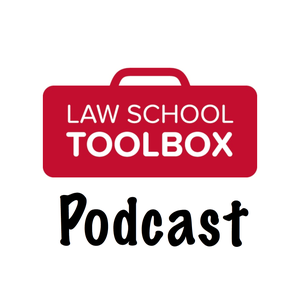 The Law School Toolbox Podcast: Tools for Law Students from 1L to the Bar Exam, and Beyond
The Law School Toolbox Podcast: Tools for Law Students from 1L to the Bar Exam, and Beyond
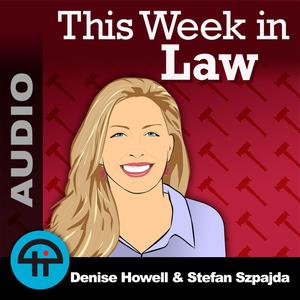 This Week in Law (Audio)
This Week in Law (Audio)
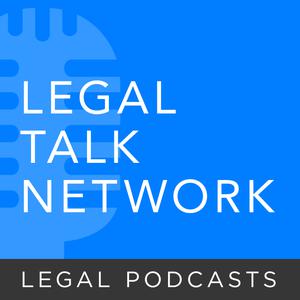 Legal Talk Network - Law News and Legal Topics
Legal Talk Network - Law News and Legal Topics
 Lawyer 2 Lawyer
Lawyer 2 Lawyer
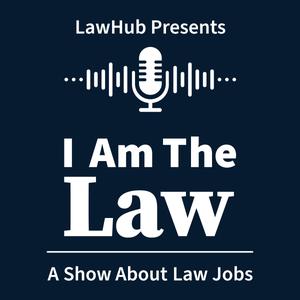 I Am The Law
I Am The Law
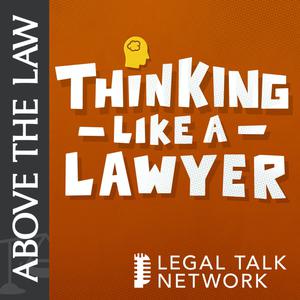 Above the Law - Thinking Like a Lawyer
Above the Law - Thinking Like a Lawyer